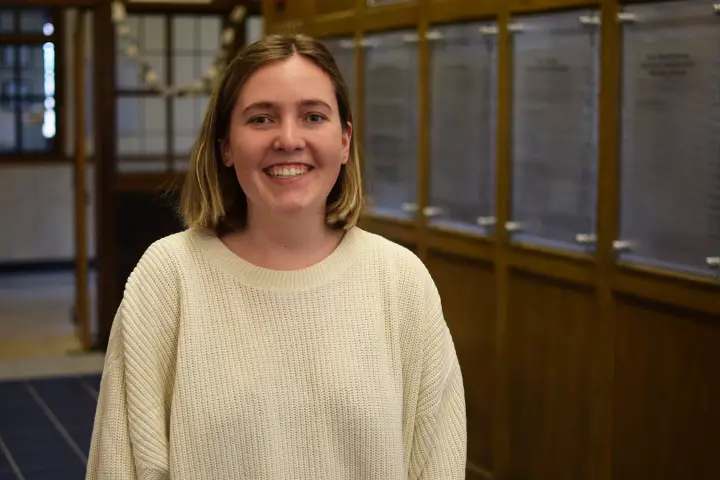Lauren Schandevel is a junior public policy major at University of Michigan. The university was only 45 minutes away from her house — close enough to go home but far enough to feel as though she had gotten away from home — which is what led her to pursuing her undergraduate degree there.
Her choice to major in public policy rather than political science resulted from an experience she had during her sophomore year while she was working on a campaign. Schandevel realized that public policy was a great option for her when she learned what it was and that she could use it to create well-needed, long-lasting change. With her major, she hopes to create economic and racial-based change so that equality can more likely be obtained.
Becoming a student activist was a journey for Schandevel, one that began when she went to another school district that was much more affluent than her old one. As a working-class student, it became apparent to her that there were inequalities based on how much money students’s families had.
The newer school district, which was located in a wealthy suburb, allowed students the opportunity to take AP classes and to participate in extracurricular activities. Due to these experiences, she wanted to subvert the social status quo so that students of all socioeconomic backgrounds have opportunities to succeed.
Schandevel says “being a student activist means making sure that I’m sharing the spotlight with other activists.” She notes that there are so many other activists doing social justice work to create racial justice and fight xenophobia, among other causes. A student activist, in her opinion, is one who is committed to allowing other voices to be heard and showing solidarity, as well as giving credit where it is due.
At University of Michigan, the student government created a well-intentioned affordability guide that included budgeting tips, but it wasn’t practical for lower-income students; quite frankly, it was tone-deaf to students’ circumstances and needs.
One of the tips that Scandavel recalls is firing your maid, which is preposterous considering that most lower-class students can barely afford rent, let alone a housemaid. Realizing that this was a common issue, Lauren created the “Being Not-Rich at UM” guide specifically for lower and middle-class students.
The guide was originally meant to be traditionally published, but ended up being opened up to the public and available as a Google document for accessibility reasons. Users can leave comments to ultimately be approved or not by admin. The document is about 80 pages and people from all corners are contributing to it.
Schandevel says that due to the positive attention the guide received, she wanted to use the energy she had to create something sustainable. She and a friend, Griffin St. Onge created the Michigan Affordability and Advocacy Coalition (MAAC) in order to identify groups around campus who are doing important work so they could reach out and help in their efforts.
The group is also working on some projects of their own to ensure that students with a lower income have what they need to succeed, with one of the initiatives focusing on food insecurity. To accomplish this, MAAC is pairing up with a group that is reaching out to the university president to end hunger on campus — a much-needed endeavor since about 41 percent of students are food insecure at University of Michigan due to lack of a grocery store on campus.
Another initiative is bringing back the tenant’s union on campus so that rent prices aren’t completely out of control. The average rent in Ann Arbor is $1,000 a month. Schandevel’s biggest hope is that the MAAC can work with groups and administration at the university to achieve affordability. Even if there are tips available to students, that doesn’t necessarily ensure access to the things they need, both in the short-term and in the long-term.
The University of Michigan student also hopes to get a polished, edited version of the guide published. A number of schools have contributed or created their own affordability guide, including University of Texas, Michigan State, University of Delaware, Harvard and a university in Kentucky, which is exciting to her, to say the least.
According to Schandevel, there is the impression that low income students get a free ride, which isn’t always the case, especially for middle-income students whose parents make too much money to get assistance but not enough money to actually provide their children with a college education.
Even if low income students get a free ride, the culture is not conducive to learning or accommodating since they still have to pay for housing, textbooks and groceries. Low-income students are often limited because work-study jobs and internships are their only option. There are also things besides expenses that higher-income students take for granted, including resources, internships, services and open positions.
After Schandevel graduates, she hopes to stay around in the Warren/Detroit area to work with local organizations that are advocating for economic and racial justice. She’s proud of the work that she has done and says that the attention that her project has gotten is cool and exciting.
However, she notes the students of color on campus who are also doing amazing work to elevate their communities but aren’t getting as much recognition because of how they are perceived. Schandevel’s attitude is refreshing since activism takes more than one person or group; it’s a collective effort.
















